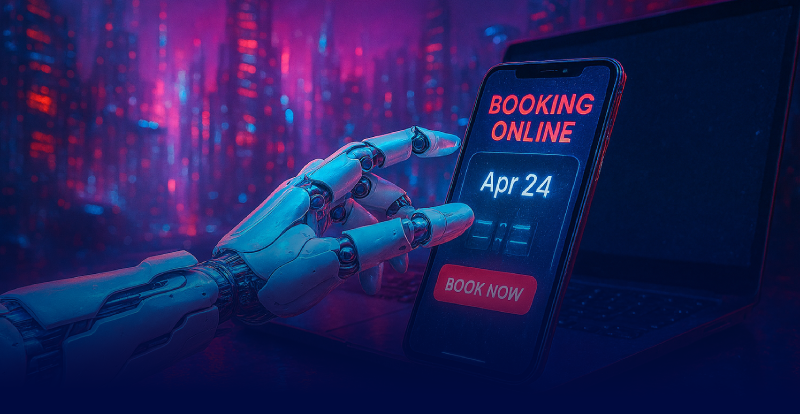1. The Booking Phase: First Impressions with AI Automation
AI-Driven Chatbots and Virtual Assistants
The rise of AI chatbots in hotels and virtual concierge systems is redefining the way guests interact. Available 24/7, these chatbots provide instant responses on room availability, pricing, and local recommendations, enhancing booking efficiency and customer satisfaction.
In Malaysia, properties like those in Penang’s hospitality industry use chatbots to streamline guest inquiries and reduce response times—showing the benefits of AI-powered booking assistants for both hotels and homestays. (Source: Multiable.com.my)
Dynamic Pricing and Personalization
With AI revenue management tools, hotels can optimize room rates in real time based on demand forecasting, seasonal trends, and guest profiles. This personalized pricing strategy boosts direct bookings and improves guest conversion rates—a key KPI in digital hospitality marketing.
Contactless Booking & Self-Check-In Tools
The integration of contactless hotel check-in and mobile key systems is now a standard expectation among tech-savvy travelers. Platforms like Hello Hotel Tech have enabled Malaysian properties such as Tanjung Point Residences to automate guest arrival through self-check-in kiosks, reflecting a shift toward touchless hospitality experiences. (Source: HelloHotelTech)
2. Pre-Arrival & Arrival: Personalized Onboarding in Smart Hotels
Hospitality automation begins even before check-in. AI-based systems collect guest preferences—such as pillow types, arrival times, or dietary needs—allowing a personalized guest experience upon arrival.
Smart Room Access & Mobile Keys
Hotels using IoT and smart lock technology provide guests with digital room keys via smartphone apps, promoting seamless access control and sustainability by eliminating plastic key cards. (Source: SmartHotel.my)
AI-Powered Check-In Kiosks
Malaysia’s first smart hotel, Kuching Park Hotel, set a new benchmark by combining mobile check-in, digital concierge, voice-controlled room automation, and app-based room management—an example of Hospitality 4.0 in action. (Source: HelloHotelTech)
3. During Stay: Smart Guest Experience Through AI & IoT
Smart Rooms and Connected Devices
AI and Internet of Things (IoT) integration allow guests to control lighting, temperature, and entertainment systems via voice assistants or mobile apps. The Pullman Hotel Kuala Lumpur uses smart control systems to improve comfort and reduce energy usage—demonstrating the role of AI sustainability solutions in modern hotels. (Source: HDL Automation)
Service Robots and Automation
Robotics in hotel operations—from room service delivery to housekeeping automation—enhance service efficiency. For instance, BBQ Plaza Malaysia introduced robot waiters, optimizing workflow and demonstrating how AI robotics can improve guest satisfaction and service flow. (Source: Secure Robotics)
AI Concierge and Real-Time Assistance
An AI concierge system functions as a virtual front desk assistant, handling guest requests instantly and suggesting personalized services like spa bookings, restaurant reservations, and local attractions. This creates a frictionless guest experience that aligns with AEO best practices for “what to do” and “where to stay” searches in Malaysia. (Source: Raizo.com.my)
4. Checkout & Post-Stay: Seamless Departure with Automation
Digital Checkout and Automated Billing
The use of self-checkout kiosks and mobile billing apps improves convenience and accuracy. Automated invoicing also integrates with hotel management software, reducing manual workload and errors.
AI Feedback and Sentiment Analysis
AI-powered feedback systems automatically collect and analyze guest satisfaction surveys and online reviews, identifying trends that drive operational improvement and reputation management.
Predictive Maintenance & Smart Analytics
Using AI and ERP systems, hotels in Kuala Lumpur analyze IoT data to predict equipment failures before they occur—enhancing maintenance scheduling and reducing downtime. (Source: Multiable.com.my)
5. Benefits of Hospitality 4.0 in Malaysia
- Enhanced Guest Satisfaction: Research in Kuala Lumpur’s luxury hotels shows AI guest experience technology directly increases satisfaction, loyalty, and recommendation intent.
(Source: TourismJournal.net)
- Operational Efficiency & Energy Savings: Smart room automation at Pullman Hotel KL achieved improved comfort and reduced energy consumption—proving that AI sustainability drives measurable ROI.
- Revenue Growth: Chatbots for hotels in Malaysia (like Asksuite) have shown significant uplift in direct bookings and upselling success, reducing OTA commission dependency.
(Source: 5050Malaysia.com)
6. Challenges for Hotels Implementing AI
- Legacy System Integration – Many properties still run outdated PMS software incompatible with AI hospitality platforms.
- Data Privacy & PDPA Compliance – Guest data must comply with Malaysia Personal Data Protection Act (PDPA) regulations.
- Human Touch vs. Automation – Balance between digital convenience and personalized human service remains essential.
- Staff Upskilling – Emphasis on training teams to collaborate with automation tools, rather than being replaced by them.
7. Future of Hospitality 4.0
Voice & Multimodal Interfaces
Voice AI (e.g., Alexa for Hospitality, Google Assistant) will enable conversational room controls and hands-free guest engagement.
Predictive Personalization
Machine learning will anticipate guest preferences, creating context-aware experiences—the next frontier in AI hospitality marketing.
Sustainable Smart Hotels
Energy-efficient automation and green IoT systems will align hotels with eco-tourism goals and Malaysia’s sustainable hospitality standards.
Conclusion: The Human Touch in a Digital Age
As Malaysia’s hotel and tourism sector continues to recover and innovate, Hospitality 4.0 technologies—AI chatbots, smart automation, and digital concierge systems—are redefining how hotels deliver value.
By combining automation efficiency with authentic human service, hotels can create memorable guest journeys, boost operational profitability, and maintain their competitive edge in a tech-driven tourism economy.

















